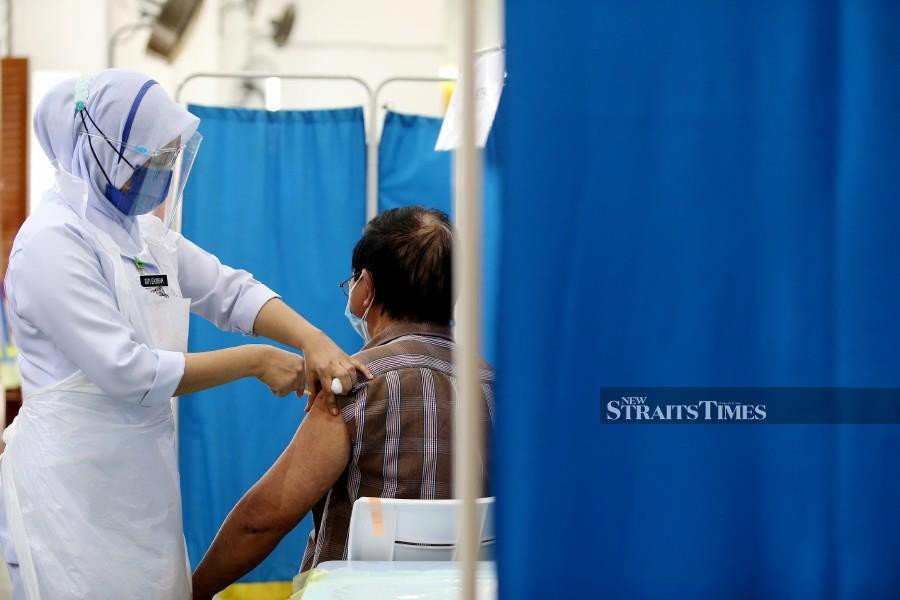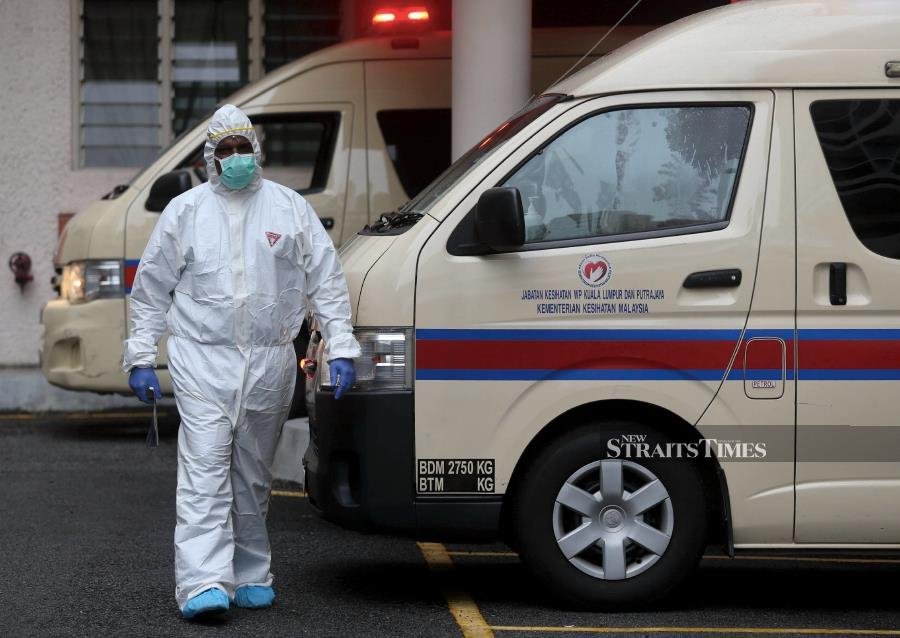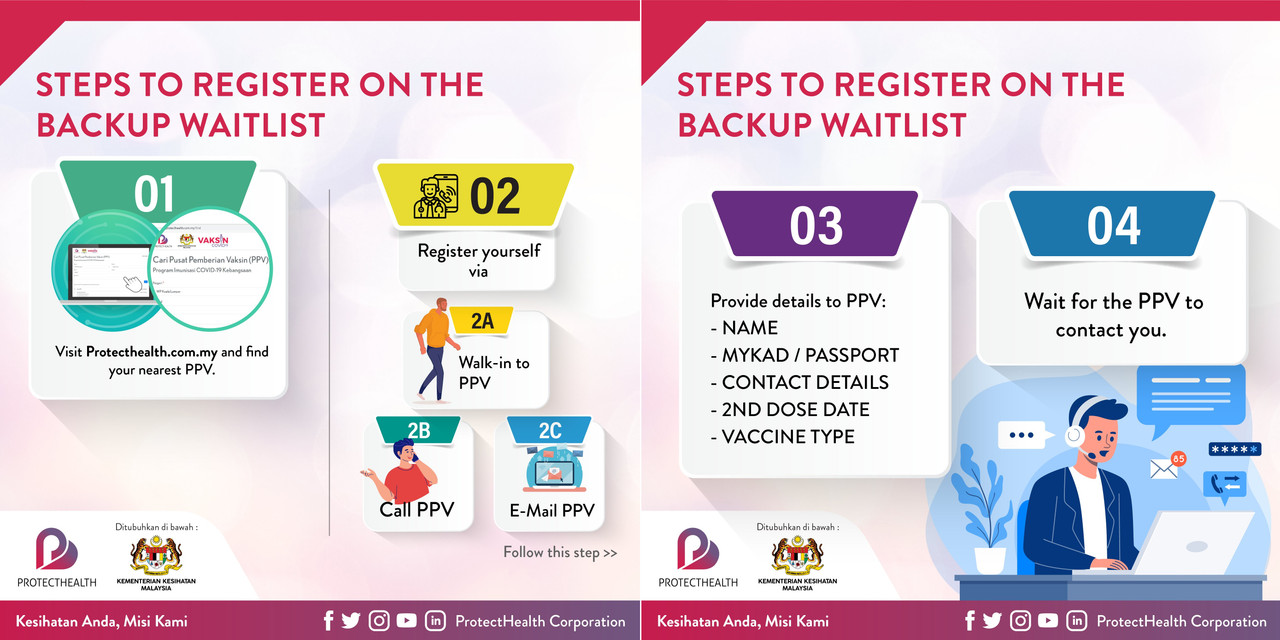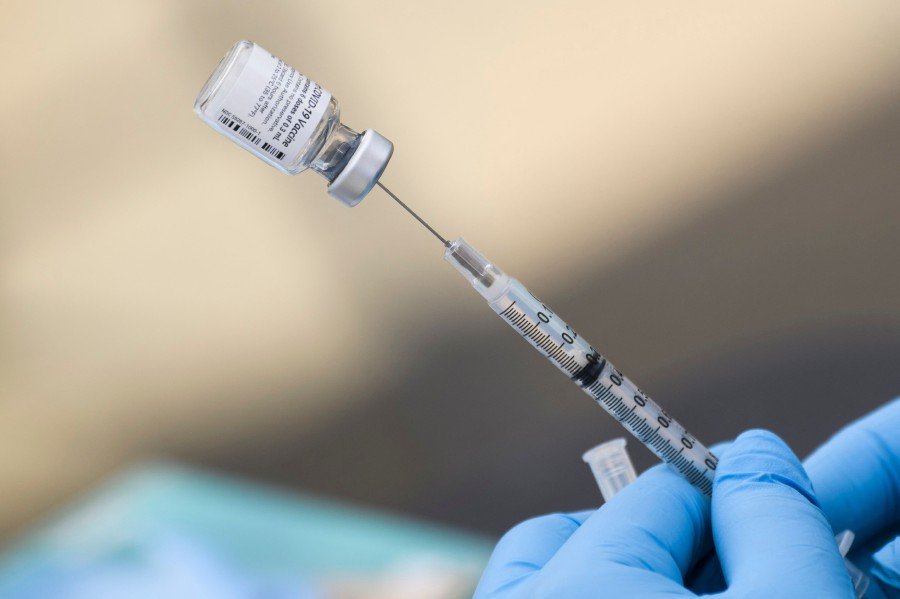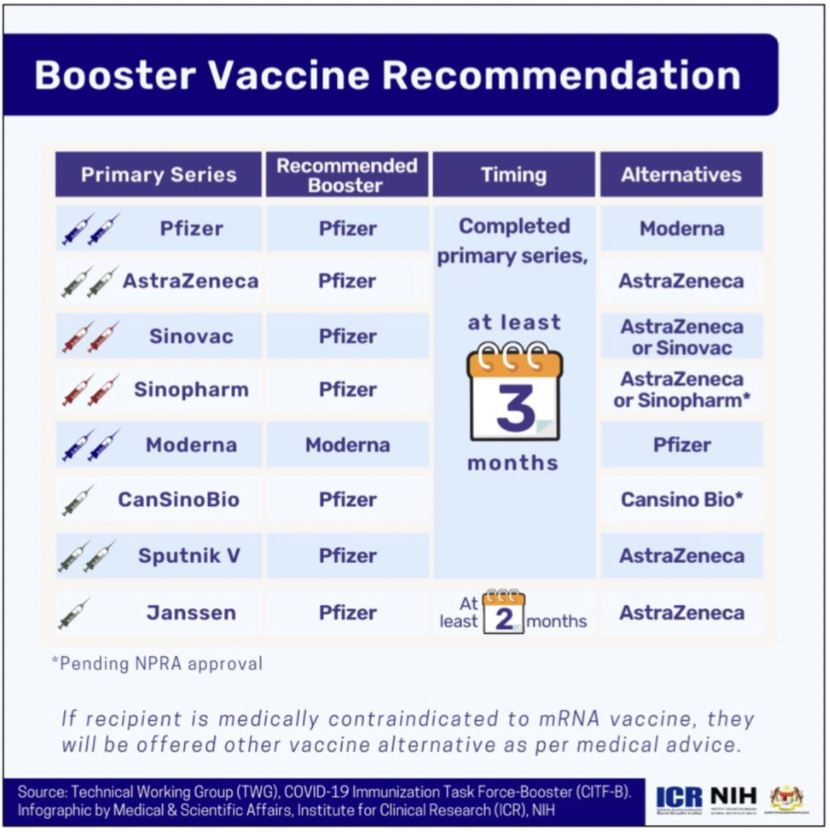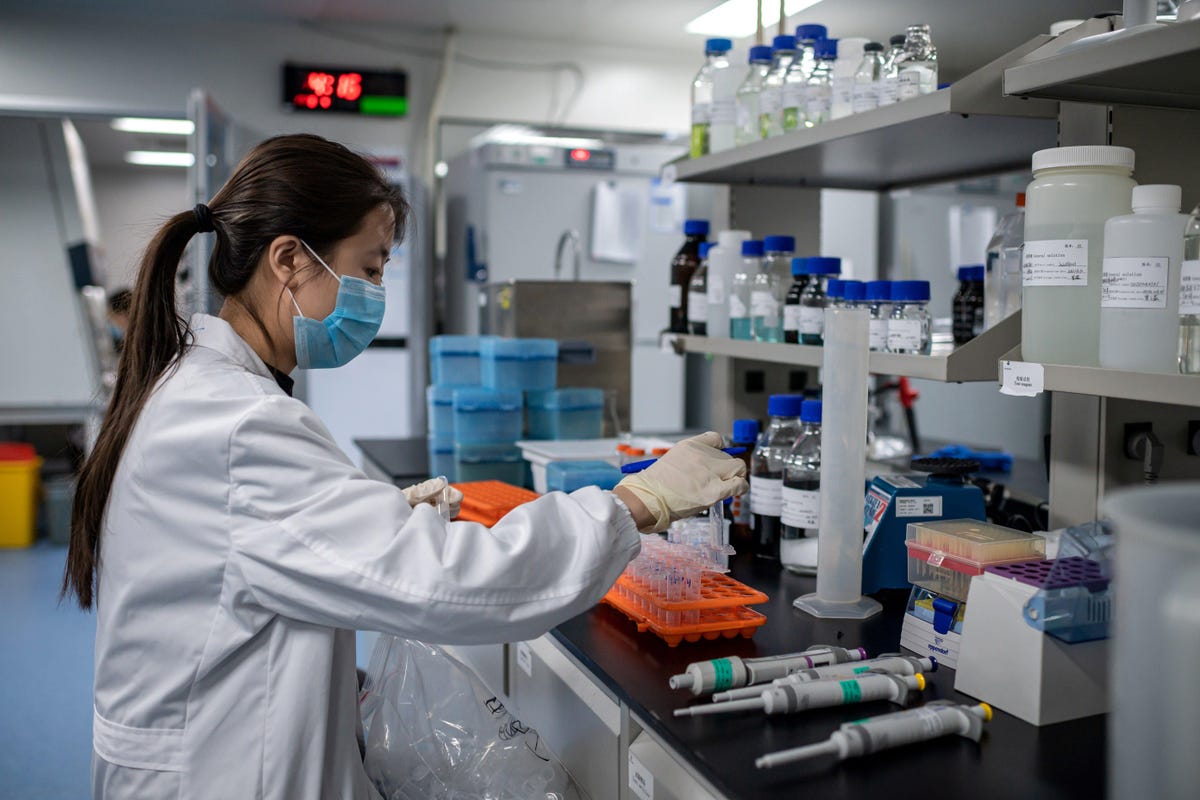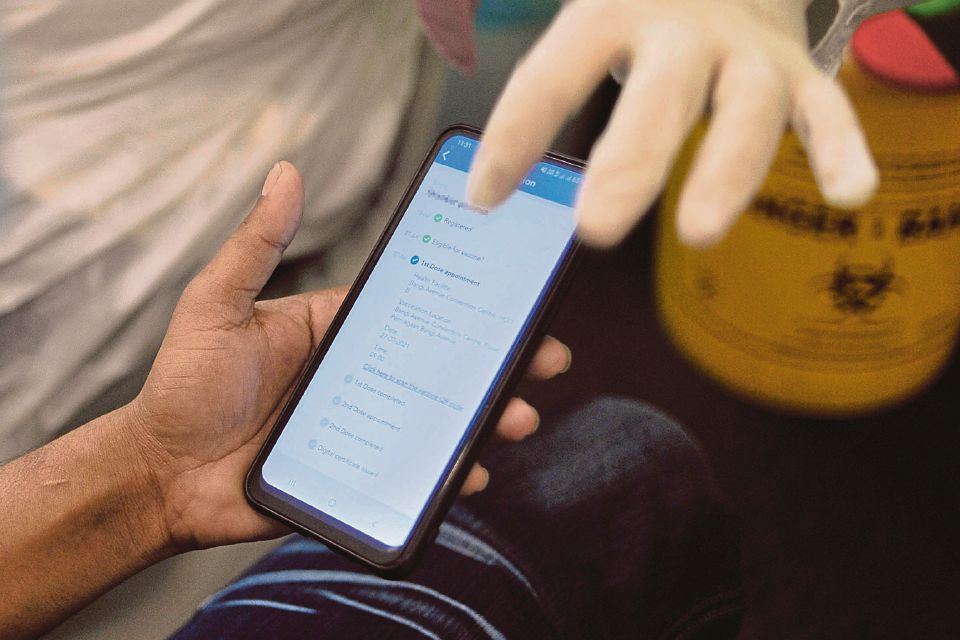8 Things You Need To Know Before Getting Your COVID-19 Booster Shot
To put to rest some worries.
Subscribe to our Telegram channel for our latest stories and breaking news.
Editor's note: The story has been updated with a statement by the Ministry of Health (MOH) on 28 December about booster shot intervals.
After successfully getting 95% of the adult population vaccinated against COVID-19 in Malaysia, the Ministry of Health (MOH) is now encouraging the public to take a booster shot
Unfortunately, due to the poor communication of the information and benefits of accepting a third dose, there has been much hesitancy since booster shots were approved in the country on 13 October.
Last week, about one month into the programme, Health Minister Khairy Jamaluddin expressed concern that as many as 40% of people under the National COVID-19 Immunisation Programme (PICK) did not show up for their booster shot appointments.
To put to rest some confusion, here are some things you should know about the COVID-19 booster shots:
1. If the vaccines are effective as health experts say, why do we need booster shots?
According to the US Centers for Disease Control and Prevention (CDC), current studies and observations have shown that protection against COVID-19 infection with the vaccines may decrease over time.
So, booster doses are recommended to continue preventing infection and the spread of COVID-19 among the population.
The booster dose does not negate the fact that primary vaccination has been effective in preventing severe illness, hospitalisations, and death by COVID-19, even against the Delta variant.
2. Who are currently eligible for booster shots in Malaysia?
As of 24 November, MOH has extended the eligibility for booster shots to all adults aged 18 and above.
However, booster doses will be rolled out with priority given to people with high risk of contracting the infection such as healthcare workers, and those with high risk of developing severe COVID-19 disease such as the older population and the immunocompromised.
Namely, priority will still be given to high-risk groups such as:
- Frontliners
- Adults aged 40 and above
- Adults aged 18 and above with comorbidities
- Staff and residents of care facilities
- Individuals travelling abroad
- Pregnant mothers
Eligible individuals may visit MySejahtera to register for the booster shot, or visit online portal ProtectHealth to find their nearest vaccination centre (PPV), then walk in, call, or email them to place their names on the priority wait list, instead of waiting for a MySejahtera appointment.
3. When can we get our booster dose after our initial shots?
As of 17 November, Malaysia's Drug Control Authority (DCA) has given conditional approval to Pfizer, AstraZeneca, and Sinovac vaccines to be used as booster shots.
As of 28 December, the recommended intervals for the booster doses are:
- Three months after completing the Pfizer vaccine second dose
- Three months after completing the AstraZeneca vaccine second dose
- Three months after completing the Sinovac vaccine second dose
4. What are the recommended booster combinations?
MOH has approved the use of both homologous (same vaccine) and heterologous (different vaccine) boosters in the country.
According to the schedule, Pfizer and AstraZeneca are the recommended booster shots for all vaccine types.
However, Pfizer is recommended for those below the age of 50, whereas those above 50 are recommended to take the AstraZeneca booster instead.
Meanwhile, Sinovac recipients may take a Sinovac booster if they want, although the recommended boosters are still Pfizer and AstraZeneca.
5. Are booster shots the same formulation as existing vaccines?
Yes, the booster formulation and dosage of the COVID-19 vaccines are the same as that used for the first two doses.
The dosages for booster vaccinations are:
- 0.3ml for the Pfizer vaccine
- 0.5ml for the AstraZeneca vaccine
- 0.5ml for the Sinovac vaccine
6. How does a booster shot work if I receive a different brand from the vaccine I completed earlier?
In essence, all vaccines work by introducing a weakened or inactivated protein of a virus into our bodies that will trigger an immune response to build immunity against a future attack.
So, no matter if it's a viral vector vaccine (AstraZeneca), inactivated vaccine (Sinovac), or mRNA vaccine (Pfizer), an immune response will be elicited.
Also, according to CDC, clinical trial data has shown that both homologous and heterologous boosters do lead to a strong immune response against COVID-19.
7. Are booster shots safe?
Yes, the vaccines have been studied and gone through many international regulatory bodies for approval. There is also good international data that booster doses are safe, even though adverse side effects to vaccines are still possible but extremely rare.
Most side effects are similar to primary vaccination, which are mild or moderate and usually get better within a few days such as fever, headache, fatigue, and pain at the injection site.
8. Am I still considered 'fully vaccinated' if I don't get a booster shot?
Generally yes, everyone is still considered fully vaccinated two weeks after their second dose.
However, as of 16 December, MOH announced that Sinovac recipients and Malaysians aged above 60 will have their 'fully vaccinated' statuses revoked unless they receive their booster doses by February 2022.
